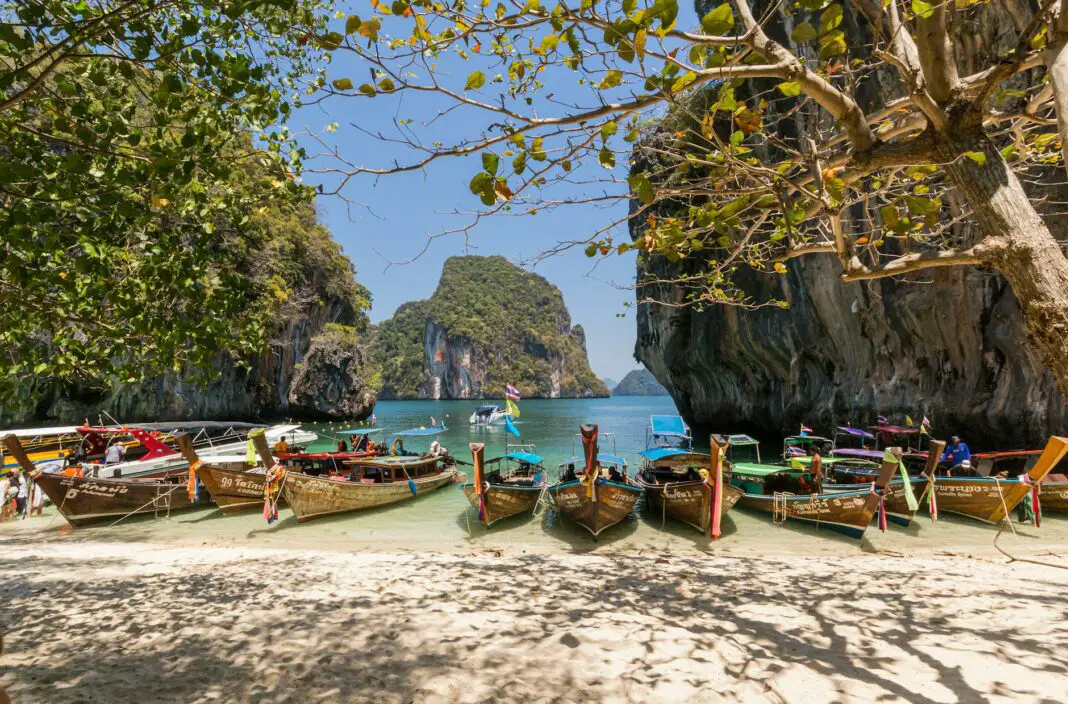Thailand is a dazzling destination where stunning natural beauty meets vibrant culture, making it a hotspot for eco-tourism enthusiasts. With its rich biodiversity and commitment to sustainable practices, the country has showcased a range of inspiring eco-tourism success stories that captivate travelers while contributing to environmental preservation. In this blog post, we will dive deep into inspiring stories from Thailand, highlighting key initiatives, locations, and responsible travel practices that have made a significant impact on local communities and ecosystems. Whether you are planning a trip or simply curious about eco-tourism, prepare to be inspired by the remarkable efforts that pave the way for a sustainable future in this tropical paradise.
As you explore Thailand, you’ll discover how various communities and organizations work tirelessly to protect their natural resources and promote sustainable tourism. From ethical wildlife sanctuaries aiding in the rehabilitation of rescued animals to community-run eco-lodges that empower local residents, these tales of success showcase the intersection of tourism and conservation. This blog will not only enlighten you about these initiatives but will also encourage you to engage in responsible travel practices while experiencing the ethereal beauty of Thailand.
Table of Contents
- Eco-Lodges: Nurturing Nature and Communities
- Wildlife Sanctuaries: A Home for Rescued Animals
- Community-Based Tourism: Empowering Locals
- Sustainable Agriculture: Cultivating Responsibility
- Marine Conservation: Protecting Thailand’s Oceans
- Join the Movement for Sustainable Travel
Eco-Lodges: Nurturing Nature and Communities
Eco-lodges in Thailand are not just places to stay; they embody the experience of cohabiting harmoniously with nature. Nestled in idyllic locations, these eco-friendly accommodations offer travelers a unique chance to immerse themselves in local culture while minimizing their ecological footprint. Picture waking up to the sounds of chirping birds and rustling leaves as you sip your morning coffee on a bamboo deck overlooking a lush forest. Many eco-lodges integrate renewable energy sources, organic food production, and waste management systems that empower guests to participate in sustainable practices.
For instance, the famous Soneva Kiri Eco-Resort on the island of Koh Kood showcases luxury stays while focusing on conservation efforts. With a commitment to reducing plastic waste and promoting environmental education, it sets an exemplary standard in eco-tourism. Guests can opt for activities like nature walks led by trained local guides who share insights on the region’s flora and fauna. By choosing eco-lodges, you not only enjoy a remarkable getaway but also support initiatives aimed at preserving Thailand’s biodiversity.
Wildlife Sanctuaries: A Home for Rescued Animals
Thailand is home to numerous wildlife sanctuaries that serve as safe havens for injured, orphaned, or abused animals. Unlike traditional zoos, these sanctuaries prioritize rehabilitation and education, allowing visitors to witness the beauty of wildlife while supporting ethical treatment. The Elephant Nature Park in Chiang Mai is a prime example, where rescued elephants live freely and receive the care they deserve. Visitors can participate in daily activities such as feeding and bathing the elephants, gaining a profound understanding of their behavior and needs.
Not only do wildlife sanctuaries advocate for animal welfare, but they also promote conservation awareness among tourists. Seeing elephants thrive in their natural environment rather than performing tricks fosters respect and understanding for these majestic creatures. By seeking out such establishments when you travel, you contribute to funding their vital work, ensuring the protection of endangered species and their habitats for generations to come.
Community-Based Tourism: Empowering Locals
Community-based tourism initiatives thrive throughout Thailand, emphasizing the importance of local engagement in preserving cultural heritage and natural resources. These programs invite tourists to experience authentic Thai culture while providing substantial economic benefits to communities. It fosters a sense of pride and ownership among locals, encouraging them to safeguard their traditions and natural surroundings.
For example, the village of Ban Krang in Kanchanaburi offers unique cultural exchanges, including traditional cooking classes and handicraft workshops. Visitors not only acquire new skills but also gain insights into the everyday lives of local artisans. This form of tourism promotes cultural sensitivity and positive interactions between visitors and residents, building bridges that transcend economic barriers and create shared experiences.
Sustainable Agriculture: Cultivating Responsibility
Thailand’s agricultural practices are evolving, with an increasing number of farmers embracing sustainable methods that prioritize eco-friendliness and biodiversity. The concept of organic farming is gaining traction, particularly in regions such as Chiang Mai and Phetchabun. By adopting these practices, farmers reduce reliance on harmful pesticides and fertilizers, resulting in healthier crops and ecosystems.
Visiting organic farms allows travelers to witness first-hand the significance of sustainable agriculture. Many farms offer tours and cooking classes that showcase how fresh, organic ingredients are cultivated and utilized. Emphasizing this approach not only enhances food security but also contributes to the overall health of the environment. Engaging with local farmers and understanding their practices fosters a greater appreciation for the food systems that sustain us.
Marine Conservation: Protecting Thailand’s Oceans
Thailand’s extensive coastline and vibrant coral reefs make it a snorkeling and diving paradise. However, with the rise of tourism comes the responsibility to protect these delicate ecosystems. Innovative marine conservation efforts have emerged, aiming to balance tourism with environmental sustainability, while engaging visitors in the protective initiatives. Various organizations actively promote responsible diving and snorkeling practices, helping to mitigate the impacts of tourism on marine life.
Participating in coral restoration projects, such as those conducted by the Coral Triangle Initiative, encourages tourists and locals alike to contribute to marine health actively. These efforts aim to restore damaged reefs, enhancing marine biodiversity while fostering awareness of coastal ecosystems. By making conscious choices in marine tourism—like becoming involved in clean-up efforts or choosing eco-certified dive operators—you make a meaningful impact in safeguarding Thailand’s underwater treasures.
Join the Movement for Sustainable Travel
As this exploration of Thailand’s eco-tourism success stories illustrates, sustainable practices not only benefit the environment but also enhance the travel experience. By actively participating in eco-friendly tours, supporting local communities, and advocating for responsible tourism, you can become a catalyst for change. Traveling thoughtfully and making informed choices can promote a positive feedback loop where both nature and local cultures thrive.
As you plan your adventures in Thailand, think about the impact of your choices on the delicate ecosystems and communities you encounter. Seek out eco-lodges, participate in wildlife education programs, engage in community tourism projects, and support sustainable farming practices. Each small step contributes significantly to a broader movement that champions responsible tourism while marveling at the wonders of this enchanting destination.
Questions and Answers about Eco-Tourism in Thailand
- What is eco-tourism?
Eco-tourism is responsible travel that aims to conserve the environment, respect local cultures, and enhance the wellbeing of local communities. It often involves activities that minimize ecological impacts and promote sustainability. - How can I support eco-tourism in Thailand?
You can support eco-tourism by choosing to stay in eco-friendly accommodations, participating in local conservation programs, and being mindful of your ecological footprint while exploring. - What are some eco-friendly activities to do in Thailand?
Engage in activities such as visiting wildlife sanctuaries, taking part in organic farm tours, participating in beach clean-up initiatives, and experiencing community-based tourism programs. - Are there any certifications for eco-friendly businesses in Thailand?
Yes, several organizations certify businesses as eco-friendly or sustainable, including the Green Leaf Foundation and the ASEAN Green Hotel Standard, allowing travelers to make informed choices. - Why is marine conservation important in Thailand?
Marine conservation is critical in sustaining Thailand’s biodiversity, supporting fishing economies, and protecting coral reefs, which are vital for the health of marine ecosystems and local livelihoods.
Your Adventure Awaits: Explore Thailand’s Eco-Tourism Wonders
Consider embarking on a voyage to explore the eco-tourism initiatives that Thailand offers. The remarkable stories of sustainable practices, community empowerment, and conservation efforts present a captivating narrative that enhances your travel experience. By embracing these opportunities, you contribute to a legacy of environmental stewardship while indulging in the breathtaking beauty of this extraordinary destination. Take the first steps today to become a responsible traveler and immerse yourself in the inspiring world of Thailand’s eco-tourism.
Image Credit: Pexels





